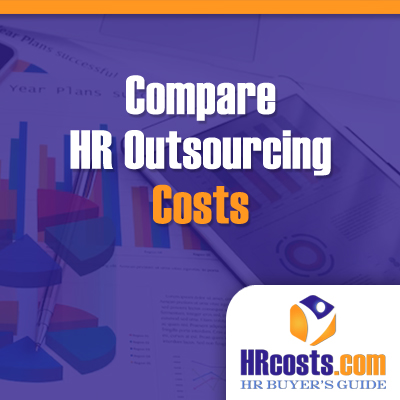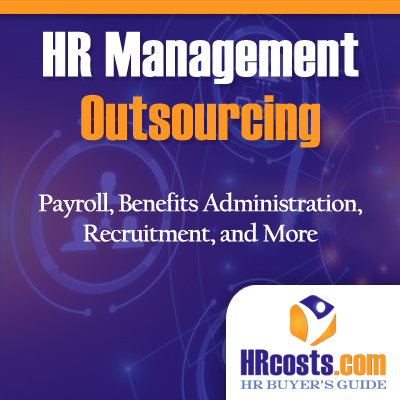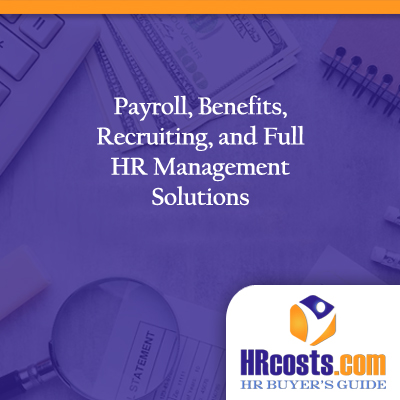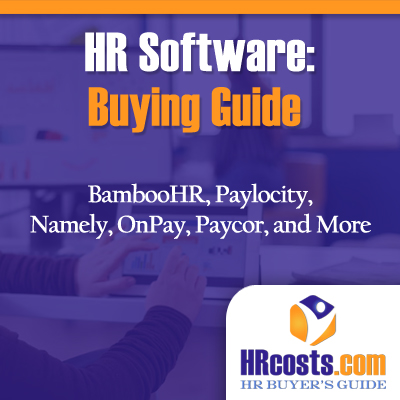
Do You Have to Have an HR Management Person for a Company?
In the fast-evolving landscape of today’s business world, the question of whether or not to have a dedicated HR management person is increasingly relevant. Human Resources (HR) plays a pivotal role in any organization, but with the advent of HR software and outsourcing options, traditional models are changing. This blog explores what HR entails, its importance, and alternative solutions like HR software and outsourcing that might suit your business needs.
Understanding the Role of HR in a Business
What is Human Resources?
Defining HR: Human Resources (HR) refers to the department within a company responsible for managing all aspects related to employees, including recruitment, training, employee relations, payroll, benefits, and compliance with labor laws. It’s a crucial part of any organization, ensuring that the workforce is productive, satisfied, and well-managed.
Key Functions of HR
Human Resources (HR) is a multifaceted department that plays a critical role in the health and efficiency of any organization. Understanding the full spectrum of HR functions is essential for any business, whether considering an in-house HR manager, outsourcing, or HR software. Let’s explore these functions in detail.
Recruitment and Onboarding
Attracting and Integrating Talent: HR is responsible for attracting the right candidates and efficiently integrating them into the organization. This involves:
- Job Design and Posting: Creating clear and attractive job descriptions that accurately reflect the role and responsibilities.
- Applicant Screening and Interviews: Assessing applications, conducting interviews, and selecting the best candidates based on skills and cultural fit.
- Onboarding Process: Facilitating a smooth transition for new hires, including orientation and initial training, to ensure they are well-integrated into the company.
Training and Development
Fostering Employee Growth: Continuous development is crucial for both employee satisfaction and business growth. HR’s role includes:
- Identifying Training Needs: Assessing skills gaps and determining the training needs of employees.
- Developing Training Programs: Creating or sourcing training and development programs to enhance employee skills.
- Career Path Planning: Assisting employees in planning their career paths within the organization, encouraging growth and retention.

Performance Management
Evaluating and Enhancing Performance: Regular assessment of employee performance is vital for both individual and organizational success. This function includes:
- Performance Reviews: Conducting regular evaluations to assess employee performance against set goals.
- Feedback and Improvement Plans: Providing constructive feedback and developing improvement plans for employees.
- Recognition and Rewards: Implementing systems to recognize and reward high performance, which can motivate employees and foster a positive workplace.
Compliance and Legal
Ensuring Regulatory Adherence: Navigating the complex web of labor laws and regulations is a critical HR function:
- Policy Development and Implementation: Developing policies that comply with labor laws and implementing them across the organization.
- Employee Relations and Ethics: Managing employee relations issues and ensuring ethical conduct.
- Record Keeping: Maintaining accurate records for all employees to ensure compliance with legal requirements.
Employee Relations
Maintaining a Positive Work Environment: HR is key in fostering a healthy, safe, and productive work environment:
- Conflict Resolution: Addressing and resolving workplace conflicts and grievances in a fair and effective manner.
- Employee Engagement: Creating strategies to enhance employee engagement and job satisfaction.
- Workplace Safety: Ensuring a safe workplace by implementing and monitoring safety standards and protocols.
The functions of HR are diverse and integral to the smooth operation of any business. From recruitment and onboarding to training, performance management, compliance, and employee relations, HR covers a broad spectrum that touches every aspect of an organization. Understanding these functions is crucial, whether you’re managing them in-house, through outsourcing, or via HR software. Effective HR management not only ensures legal compliance and operational efficiency but also cultivates a workplace environment conducive to growth, innovation, and employee satisfaction.

The Necessity of HR Management in Companies
In the dynamic world of business, HR management plays a critical role in shaping the workforce, culture, and overall success of a company. Understanding the necessity of HR management is key for businesses to effectively navigate the complexities of employee management and organizational development.
Why HR Management is Essential
The Cornerstone of Organizational Health: HR management goes beyond just hiring and firing. It is a comprehensive approach to managing people and the workplace culture and environment. Effective HR management ensures:
- Talent Acquisition and Retention: HR is vital in attracting and retaining top talent, which is crucial for the success and growth of any business. This involves not only recruiting skilled individuals but also creating an environment that motivates and retains them.
- Regulatory Compliance: HR professionals keep the company compliant with labor laws and regulations, which can be complex and ever-changing. This compliance is critical to avoid legal issues and penalties.
- Employee Development: HR management focuses on the growth and development of employees, ensuring they have the necessary skills and training to contribute effectively to the company’s objectives.
- Creating a Positive Work Culture: HR plays a significant role in shaping the work culture, which directly impacts employee satisfaction, productivity, and retention.
Challenges of Handling HR Internally
Navigating the Complexities: Managing HR internally can present several challenges, especially for smaller businesses or those without dedicated HR expertise:
- Resource Intensive: Effective HR management requires time and resources. For many small to medium-sized businesses, dedicating the necessary resources can be challenging.
- Expertise and Knowledge: HR encompasses a wide range of functions, each requiring specific knowledge and skills. Staying abreast of best practices, regulatory changes, and effective employee management strategies can be overwhelming for businesses without a dedicated HR professional.
- Balancing Strategic and Administrative Roles: HR roles often straddle strategic planning and day-to-day administrative tasks, making it difficult to manage both effectively without a dedicated team.
The Impact of Ineffective HR Management
Risks and Implications: Ineffective or inadequate HR management can lead to several issues, including:
- Legal and Compliance Risks: Failing to comply with employment laws can result in legal actions and fines, damaging the company’s reputation and finances.
- Poor Employee Morale and High Turnover: Without effective HR practices, employee morale can suffer, leading to high turnover rates and the loss of valuable talent.
- Stunted Organizational Growth: HR is integral to strategic planning and organizational development. Inadequate HR management can hinder a company’s ability to adapt, grow, and stay competitive.

The necessity of HR management in companies cannot be overstated. It’s a vital function that touches every aspect of employee engagement and organizational well-being. For businesses struggling to manage HR internally, outsourcing HR functions or implementing HR software can be effective solutions. These alternatives provide the expertise and tools necessary to handle HR functions efficiently, allowing businesses to focus on their core activities while ensuring their workforce is well-managed and their operations compliant.
Alternative Solutions: HR Outsourcing and Software
When to Consider Outsourcing HR
For many businesses, especially small to medium-sized ones, outsourcing HR can be an efficient and cost-effective solution. It involves hiring external organizations to handle various HR functions. Outsourcing is ideal for companies that:
- Lack the resources to maintain a full-time HR department.
- Require specialized HR expertise not available in-house.
- Want to focus their resources on core business activities.
The Role of HR Software
HR software automates and streamlines HR processes, making it easier to manage employee data, payroll, benefits administration, and more. It’s a suitable option for businesses that:
- Need to streamline HR processes without hiring additional staff.
- Want to maintain some HR functions in-house with enhanced efficiency.
- Are looking to integrate HR data with other business systems.
HR Software vs. HR Management Services: A Comparative Analysis
In the realm of HR management, businesses often find themselves choosing between HR software and HR management services. Understanding the strengths and differences of each can guide companies to the solution that best suits their unique requirements.
HR Software: Automation and Efficiency
Leveraging Technology for HR Tasks: HR software is designed to automate and streamline various HR tasks. Here’s how it can benefit your business:
- Efficiency in Routine Tasks: HR software excels at automating routine tasks such as payroll processing, benefits administration, and time tracking. This automation reduces the administrative burden and minimizes the risk of errors.
- Data Management and Analytics: These platforms offer robust data management capabilities, allowing businesses to store and analyze employee data efficiently. This can be crucial for strategic planning and decision-making.
- Self-Service Portals: Many HR software solutions include employee self-service portals, empowering employees to manage their own personal information, benefits, and leave requests, which can increase employee engagement and reduce administrative workload.
- Scalability: HR software can easily scale with your business, making it a flexible option for growing companies.
- Cost-Effectiveness: For smaller businesses or those with straightforward HR needs, software can be a more budget-friendly solution compared to hiring a full HR team or outsourcing.

HR Management Services: Expertise and Personalization
Access to HR Expertise and Comprehensive Management: HR management services involve outsourcing HR tasks to external experts. Here’s how they can add value:
- Access to Expertise: HR services provide access to experienced HR professionals who can offer guidance on complex issues like legal compliance, employee relations, and strategic HR planning.
- Personalized HR Management: Unlike software, HR services can offer a more personalized approach, tailoring their services to the specific needs of your business.
- Handling Complex HR Functions: For businesses with complex HR needs, such as those operating in highly regulated industries, HR services can manage intricate aspects of HR that software alone may not address.
- Flexibility and Time Savings: Outsourcing HR frees up time for business owners and internal staff to focus on core business activities, knowing that HR is being managed by professionals.
Comparing HR Software and HR Management Services
Understanding the Key Differences: The main differences between HR software and HR management services lie in the level of personalization, expertise, and the nature of tasks they are best suited for. While software provides efficiency and automation for routine tasks, HR services offer personalized expertise and management, especially for complex HR functions.
Determining the Best Fit for Your Company
Assessing Your Business Needs: The choice between HR software and HR management services depends on several factors:
- Size and Complexity of Your Business: Smaller businesses with straightforward HR needs may find HR software sufficient, while larger or more complex businesses may benefit from the comprehensive approach of HR services.
- In-House HR Expertise: Companies with an existing HR team may only need HR software to supplement their efforts, whereas businesses without HR expertise might opt for full-service HR management.
- Budget Considerations: Budget constraints might influence the decision, with software often being the more cost-effective option.
- Nature of the Industry: Businesses in highly regulated industries or those with unique HR challenges may require the specialized knowledge that HR management services offer.
Choosing between HR software and HR management services is a decision that hinges on your business’s size, complexity, industry, and specific HR needs. While HR software offers efficiency and scalability, HR management services provide expertise and personalized management. In some cases, a combination of both might be the optimal solution, offering the benefits of technology along with expert guidance. Ultimately, the goal is to ensure that your HR functions support and enhance your business operations, whether through advanced software solutions, expert outsourcing, or a blend of both.

Navigating the Legalities of HR Solutions
In the complex world of employment laws and regulations, ensuring legal compliance is a paramount concern for businesses. Whether opting for HR software or HR management services, understanding how each solution addresses legal compliance is essential.
Legal Compliance with HR Software
Technology-Driven Compliance Solutions: HR software can be a valuable tool in maintaining legal compliance, especially in areas such as:
- Payroll and Tax Compliance: Many HR software solutions offer features that help businesses comply with tax laws and payroll regulations, automatically updating to reflect changes in legislation.
- Data Protection and Privacy Laws: With the increasing emphasis on data privacy, HR software can assist in ensuring that employee data is stored and managed in compliance with laws like GDPR or the CCPA.
- Record-Keeping Requirements: HR software typically includes record-keeping functionalities that help businesses maintain essential documents and records, a key aspect of legal compliance.
However, while HR software can facilitate compliance in these areas, it requires the users to stay informed about relevant laws and ensure that the software settings are correctly configured to comply with them.
Legal Expertise in HR Management Services
Professional Guidance and Assurance: HR management services provide the advantage of expert knowledge in navigating legal complexities. These services typically offer:
- Up-to-Date Legal Expertise: HR service providers stay abreast of the latest developments in employment laws and regulations, offering informed guidance to ensure your business remains compliant.
- Handling Sensitive Legal Issues: Issues such as employee grievances, terminations, and disputes require careful legal handling. HR service providers can manage these situations in compliance with legal requirements, reducing the risk of lawsuits or legal penalties.
- Customized Legal Strategies: Unlike software, HR services can develop customized strategies that address the specific legal challenges and requirements of your business.

Balancing Technology and Expertise
Combining the Best of Both Worlds: In many cases, a combination of HR software and HR management services can provide a comprehensive approach to legal compliance. While software offers efficiency and automated updates, the expertise of HR professionals ensures nuanced and situation-specific legal guidance.
Legal Considerations for Your Business
Assessing Your Needs and Risks: When deciding on an HR solution, consider:
- The Complexity of Your Business Operations: Businesses with complex operations or those in highly regulated industries might benefit more from the personalized expertise of HR management services.
- Internal Expertise and Resources: Assess whether your internal team has the necessary legal knowledge or if you need external support.
- Risk Assessment: Consider the potential legal risks associated with your business and how an HR solution can mitigate these risks.
The decision to have an in-house HR management person, outsource HR functions, or use HR software depends on various factors including your business size, needs, and resources. While larger organizations may benefit from an in-house HR department, smaller companies might find HR outsourcing or software more feasible. In today’s digital age, leveraging HR software or outsourcing can provide businesses with the flexibility and efficiency needed to manage their workforce effectively, allowing them to focus on growth and operational excellence.
